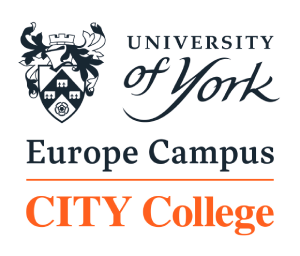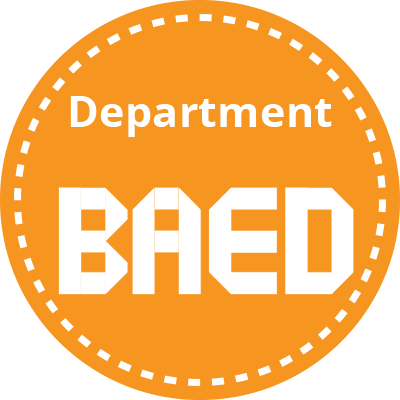Neuromarketing - MSc

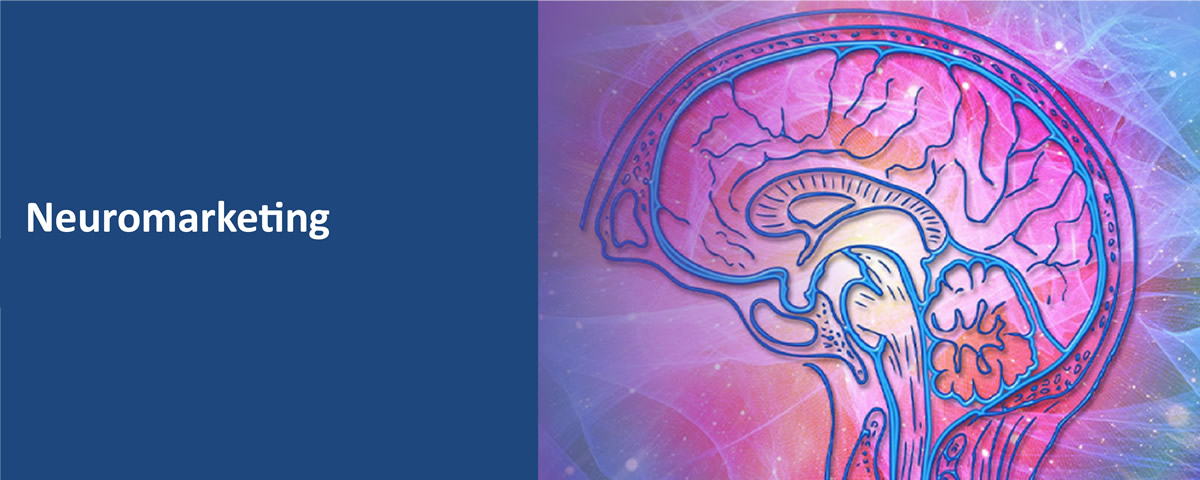
Degree title: Master of Science in Neuromarketing.
The title is awarded directly by the University of York.
Duration: 1 year (full time) or 2 years (part time)
Mode of delivery: Classes take place on weekday evenings
Language of instruction: English
Fees (Early Bird Scholarships)
We encourage you to take advantage of our Early Bird Scholarships scheme to save on tuition fees and secure your spot.
For more information, please fill in the form above or call us at (+30) 2310-224026.
The programme
Increased competitiveness in marketing and branding requires marketing professionals to better understand what consumers think or feel about products and advertising strategies. Recent technological advances opened new insights to obtain valuable information that was previously impossible to collect. Neuromarketing uses neuroimaging technologies to study the brain's responses to marketing stimuli. In this context, neuromarketing is a complementary scientific approach to analyse and understand the consumers' behavior and emotions.
Neuromarketing is a complex, multidisciplinary field that requires knowledge in the fields of brain sciences and neuroscience as well as marketing. Our MSc programme is offering theoretical and practical training in both fields of neuroscience and marketing, with a special focus on Neuromarketing technologies like, EEG, ECG, GSR and Eye-tracking. Upon completion of this programme, students will be able to perform neuroscientific experiments so as to extract valuable information and develop effective marketing strategies. Furthemore, our students will have a working understanding of key functions of the brain and the body relevant to marketing, and especially to persuasion theory and practice.
Why choose this course?
-
Degree from one of the world’s top universities, the University of York.
-
Opportunities for potential placements and internships assisting students to embark their career in neuromarketing while studying.
-
Expert teaching team, comprised of seasoned academics and industry experts with experience in neuromarketing.
-
Programme led by neuromarketing specialist, Dr Nikolaos Dimitriadis.
-
Graduates may pursue careers as neuromarketing consultants, neuromarketing managers, neuromarketing researchers, eye-tracker analysts, product managers, marketing and communications manager, brand strategists, public relations, advertising directors and many more.
-
Specialised programme of studies focusing on latest neuromarketing theory and practices.
- A pathway to a successful career in Europe and abroad.
-
The programme is officially supported by the Neuromarketing Science and Business Association (NMSBA) and the Italian Neuromarketing Association (AINEM).
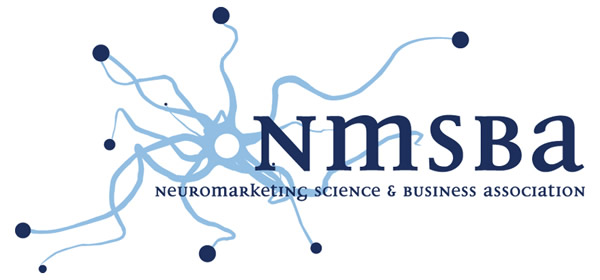
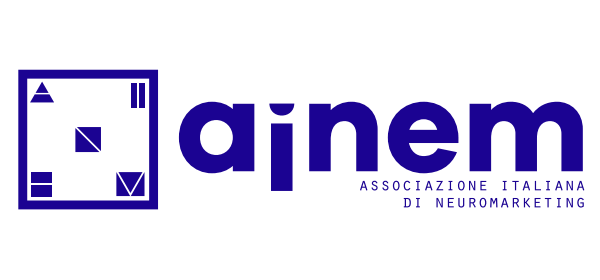
Dr Nikolaos Dimitriadis presents the MSc in Neuromarketing
Presentation of the MSc in Neuromarketing by Programme Lead, Dr Nikolaos Dimitriadis
(Online Info Session)
- Neuroscience for Marketing
- Consumer Psychology & Neuroscience
- On-line Consumer Behaviour
- Digital Marketing Communication
- Strategic Brand Management
- Digital Marketing Analytics
- Neuromarketing Lab
- Research Methods
- Dissertation
Neuroscience for Marketing (The Human Brain: Structure, Function and Behavior)
This module introduces students to the fundamentals of the human brain. The purpose of the module is for students to acquire a wide view of key issues concerning the human brain in relation to its evolution, structure, function and impact on human behavior. Central debates in the field will be discussed like free will, decision-making, emotions and social interaction. The learning outcome will be a comprehensive understanding of the human brain based on both a historical perspective and modern thinking in the field.
- The Purpose of a Brain: What is the brain for and how has it evolved to its present form?
- Brain Structure: How is the brain organized and how can its separate parts be analyzed?
- Brain Function: How does the brain work in the neuron level and as a whole?
- Decision-Making and Consciousness: How does the brain decide, are we in control and do we have free will?
- Memory and Attention
- Social Brain Theory: What does pro-sociality and social evolution teach us about the brain?
- Emotion Theories: How does the brain motivate action?
- Brain Chemistry: How do dopamine, serotonin, oxytocin and cortisol affect behavior?
-
Perception: How does the brain make sense of the internal and external worlds?

Consumer Psychology & Neuroscience
This module will introduce the main concepts of human psychology applied to the world of consumption. In addition, the link between consumer psychology and the marketing, advertising and sales strategy will be seen. The objective of the module is to link our own behavior as consumers with that of our customers.
Topics covered:
- Behavioral economics: consumer behavior drivers. Brain (feelings) Mind (thoughts)
- Consumer psychology: ways to understand and explore consumer's mind.
- The impact of consumption on the psychological well-being of people
- The impact of consumption on the environment: changes in behavior, ecological intelligence and demand for sustainability.
- Neuro Aesthetics & Visuals
- Consumption preferences/behavior based on gender and age
-
Consumer reactions and behaviour during crisis periods (e.g pandemic)

On-line Consumer Behaviour
The development of the World Wide Web in regards to access to information and knowledge demands the study of consumer behaviour from a global perspective. Therefore, in the fast expanding area of digital economy there has been an absolute need to examine a new type of consumer, the online consumer. The unit explores in depth the characteristics of this new consumer and compares the 'traditional' with the 'new' trends. The use of new technologies and their influence on the decision making process are analyzed, while the decision making process on purchasing online is also examined. ![]()
Digital Marketing Communication
The fast-growing digital technology has changed the marketing environment. Digital marketing channels, like social media, video, affiliation, e-mail marketing moved to the epicenter of the marketing communications. The digital marketing industry needs professionals with specialized skills and understanding of the new digital landscape. This unit will help students understand this new digital landscape and learn how to use the digital channels as marketing tools. Moreover, the unit explores the mobile-driven new environment and will also train students to evaluate the digital marketing techniques in order to use them in an integrated digital marketing strategy plan. ![]()
Strategic Brand Management
This unit addresses issues that relate to the importance of brands, what they represent to consumers and alternative strategies that can be implemented by companies to manage them properly. Although brands may represent invaluable intangible assets, creating and nurturing a strong brand poses considerable challenges. The concept of brand equity can provide students a valuable perspective and a common denominator to interpret the potential effects and tradeoffs of various strategies and tactics for their brands. Strategic brand management involves the design and implementation of marketing programs and activities to build, measure and manage brand equity. The three major questions addressed in this unit are: How can brand equity be created? How can brand equity be measured? How can brand equity be used to expand business opportunities? ![]()
Digital Marketing Analytics
Companies have access to an unprecedented volume and variety of marketing data through websites, social media and ad campaigns. In this unit students will learn how predictive analytics is used in digital marketing, how key performance indicators are set to evaluate what has happened in the past and learn how to provide an assessment of what will happen in the future. The ultimate objective is to form strategies to improve marketing campaigns and develop strategies for optimal performance and ROI. ![]()
Neuromarketing Lab
This lab-based module aims at introducing to students the tools and technologies used in neuromarketing research around the world. The main hardware and software will be presented critically, together with showcases of how they work. Students will have hands-on experience and demonstrations of each device and tool. Key issues of research design, data types and quality control will also be discussed. The main learning outcome is for students to be able to recognize which technologies and tools are more appropriate for different research problems and to be able to manage neuromarketing research projects effectively and efficiently.
Topics covered:
- Biometric techniques (Eye-Tracking, Emotional Face Analysis, Emotional Voice Analysis, Implicit Association Testing etc.).
- Neurophysiological techniques (Electroencephalography (EEG), Galvanic Skin Response (GSR), Heart Rate Variability (HRV), etc.).
- Variables Tested: What do we measure and why does it matter?
- Research Design: Which are the key elements of an effective study? (objectives, sampling, data quality, discovering insights, presenting results).
- Presentations: How to best present neuromarketing data and how to engage in meaningful conversations?
-
Ethics in Neuromarketing Research

Research Methods
This unit provides a series of lectures on academic presentation, writing skills and an introduction to research issues and methods. The unit examines a wide range of research methodologies, both qualitative and quantitative, with reference to their philosophical base and practical application in marketing, management, banking and the leisure industry. The aim is to help students design, implement and apply their own research as well as to equip them to be able to critically evaluate published material. ![]()
Dissertation
The dissertation represents a piece of individual and original research based on an approved topic of the student’s choice related to the course and selected in consultation with tutors. The term ‘originality’ here does not necessarily imply that the dissertation will develop new theoretical insights or models but that it clearly demonstrates the development of new insights and knowledge in the candidates own mind and work. ![]()
Entry requirements
View the application and admission requirements of the programme.
How to apply
If you wish to apply for this programme you may view details of the application process.
Any questions?
If you'd like to know more about this programme, contact our Admissions Team at
admissions
The Business Administration & Economics Department (BAED) of CITY College, University of York Europe Campus aims at providing all students with an intellectually stimulating and supportive environment that allows them to acquire important skills and competencies for their professional and personal life.
Business matters at BAED. Our undergraduate and postgraduate courses in management related disciplines are designed to challenge students’ thinking and inspire them to develop the advanced knowledge and analytical skills they will need to succeed in business.
Our academics continually work with international, national and regional businesses as part of their research and use their experiences to make their teaching relevant and up-to-date.
More about the Business Administration & Economics Department
Research at the Business Administration & Economics Department
The academic staff of the Business Administration & Economics Department
Contact the Business Administration & Economics Department
Recognition and Careers
Accreditation and Recognition
CITY College is strongly committed to quality education and academic excellence. It is officially accredited and recognised by top international accreditation bodies. Read more
Degree and formal qualifications
The degree and formal qualifications our graduates receive.
For Greek graduates only: Recognition of degrees
Career opportunities
Neuromarketing graduates pursue a career in companies, neuromarketing counulantices, non-profit organisations and research groups. They can also decide to develop a specific focus in their career following a science, marketing or data path to lead in jobs such as Neuromarketing Researcher, Market Research Analyst, Online Marketing Analyst, Data Analyst.
Career, Employability and Enterprise Centre
The Career, Employability and Enterprise Centre, focuses on helping students to set attainable career goals. It offers advice on CVs and cover letters, and on how to effectively handle job interviews. Through career fairs, and different internship programmes, the department aims at constantly bringing students in contact with prospective employers.
Every spring we organize the Annual Career Fair presenting with an opportunity to get a first feel of job seeking. During the event students and alumni have interview opportunities with corporate recruiters and present their skills and abilities to potential employers. Large companies, organisations and multinationals from different industries across S.E. Europe participate every year in our Career Fair and offer employment and internship opportunities to our students and graduates.
More about our Career Services.
Contact the Career, Employability and Enterprise Centre at careers
 Dr Nikolaos Dimitriadis
Dr Nikolaos Dimitriadis
Professor of Practice
Programme Lead, MSc in Neuromarketing
Dr. Nikolaos Dimitriadis (MBA, PhD) has been applying neuroscience in business and education for over fifteen years. He is an award-winning communications professional, educator and consultant.
He is the co-author of the books “Neuroscience for Leaders: Practical Insights to Successfully Lead People and Organizations” (now in its 2nd edition), translated in several languages around the world, and “Advanced Marketing Management: Principles, Skills and Tools”, both for Kogan Page London.
He spoke at TEDx University of Strathclyde for the urgent need for Brain-Based Communication, he is a certified neuromarketer and he lectured at the Neuromarketing Manager Program at Hamburg Media School.
He is a highly sought-after speaker and consultant, teaching regularly in MBA and corporate programs around the world. He was voted by the students the best lecturer at the MBA program of the Sheffield University Management School in the UK.
He has worked with major brands such as IKEA, IBM, JTI, Nestle, Johnson&Johnson, AstraZeneca, T-Mobile, Trivago, Pierre Fabre, Coca-Cola, Banca Intesa Sanpaolo, Microsoft, CISCO, SAP, VMware, Emirates NBD, Raiffeisen Bank, Societe Generale, Credit Agricole, Rauch, Teekanne, USAID, UNICEF and others.
Dr. Dimitriadis has studied more than 6,000 brains in 25 countries for neuromarketing, neuroHR and academic purposes.
In 2017 he co-founded a cutting-edge applied neuroscience startup, Trizma Neuro. Today, he is the Head of Neuro Consulting Services at Optimal HR Group, offering neuro-research, neuro-advisory and neuro-training services.
Dr. Dimitriadis is a strong advocate of brain-based solutions to business and social challenges.
LinkedIn Articles
- What Does Your Brain Say About You?
- Neural Synchronization: How Bonding and Influence Work in the Brain
- Do We Live in the Matrix?
YouTube Videos
The MSc in Neuromarketing programme is officially supported by the Neuromarketing Science and Business Association (NMSBA) and the Italian Neuromarketing Association (AINEM).


The programme is taught by academic staff members who have extensive teaching and professional experience. Our academics continually work with international, national and regional businesses as part of their research and use their experiences to make their teaching relevant and up-to-date. The administration staff fully supports all processes of the department and provides a wide range of services to our students.

“Business Administration and Economics Department Staff are committed to a shared vision: to inspire people within the academic and the wider community. Our responsibility is to engage students to develop their knowledge and their skills in order to stand out for their integrity and ethos. Our main goal is to transfer our international experience, outstanding teaching, excellent research and real business networking to our students.”
Ms Aggeliki Papakonstantinou
Head of the Business Administration & Economics Department
The academic staff & administration staff of the Business Administration & Economics Department
